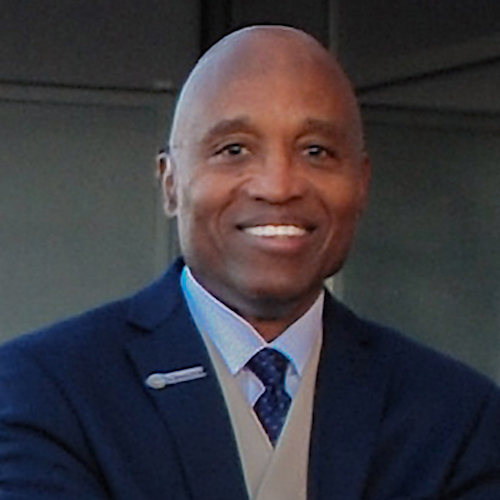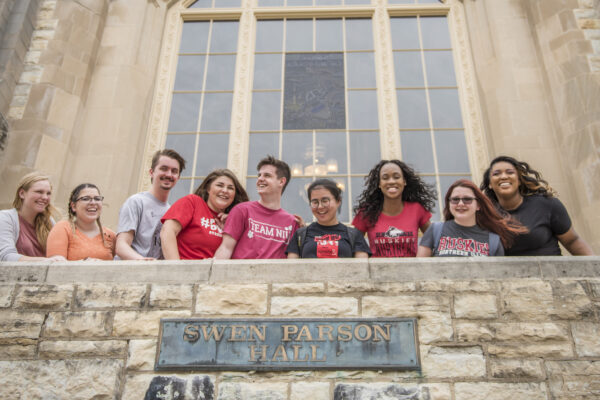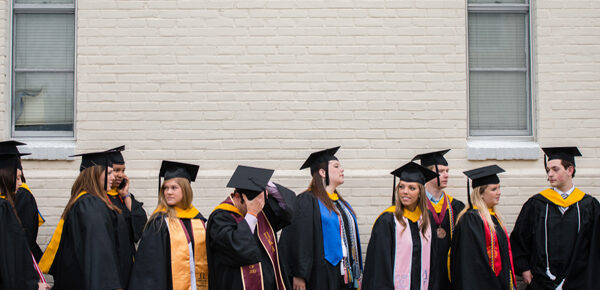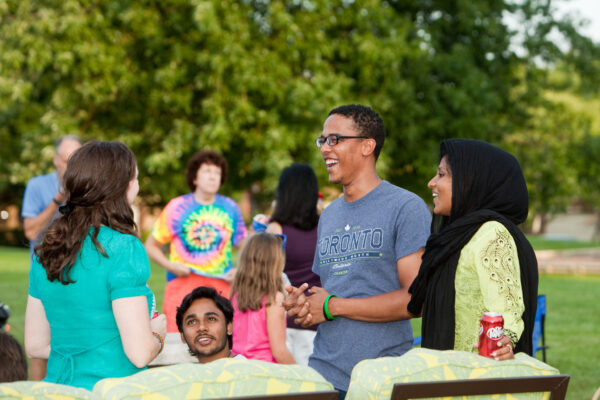By Everette J. Freeman
“The best way to find yourself is to lose yourself in the service of others.”—Mahatma Gandhi
As a first-time community college president, I find one of Mahatma Gandhi’s most lasting legacies to be his impact on leadership theory. Gandhi was an equalizing force for a legion of people whose voices were not being heard, and, through no choice of their own, had to fight for their right to dignity.
Gandhi’s lessons are a daily reminder to me that the success of Community College of Denver (CCD) hinges on our ability to serve at the highest level to those who face the greatest odds. Many of our students confront daunting obstacles before they even come through our doors.
CCD, a Hispanic-Serving Institution with nearly 30 percent of our students of Hispanic descent, has one of the most diverse student populations of any college in Colorado. Many of our students are the first in their family to attend college, and English may not be their first language. Our students often have children at home or are homeless. Frequently, they lack the family structure or support to help them navigate higher education. Nevertheless, they persevere and succeed. These students are highly self-motivated, and it doesn’t take long for them to realize that we are uniquely positioned to support them as a learning community.
A study from the University of Wisconsin-Madison showed that there are 16 attributes identified to building and sustaining a learning community, including a diverse student population like ours. Of those, CCD has embraced modeling educators, small group learning, a supportive culture, one-on-one relationships and meaningful discussion, all to expand our students’ opportunities and leadership skills. The basis of this research shows that Gandhi’s leadership style of walking your talk is crucial.
CCD also has put into practice—or revamped—a half dozen support programs to increase student retention and degree completion. Most recently, we revised academic advising around a “one student, one advisor” approach and redefined our math pathways so students can enroll in the college-level math course that best fits their educational pathway. Outside the classroom, we offer students support mechanisms like TRIO Student Support Services, a food pantry and mental health resources.
Aside from our programs and services, CCD thrives on open-door communications. Many of our students require one-on-one attention, and they get that attention because faculty and staff open their doors when students need help, regardless of office hours.

The Power of Persistence
Recent CCD graduate Lisa Marie Fertman is a perfect example of how intentionality in supporting students bolsters student success. Lisa achieved a measure of professional and financial success after her lifelong struggle with anorexia sent her to the hospital with heart complications. Extensive treatment left her penniless and homeless with no support. Still struggling with her disease, she turned to the Denver Rescue Mission. A facility administrator suggested that enrolling in CCD would help her get back control of her life.
Through scholarships and part-time work-study, combined with her own persistence, Lisa secured an apartment and got off the streets. Three and a half years later, she graduated with high honors with her associate degree in human services, was president of the Phi Theta Kappa (PTK) Honor Society and a member of National Society of Leadership (NSL), Si Beta and other student groups. Lisa is transferring to a four-year Colorado university this fall in pursuit of a bachelor’s degree in human services.
Lisa shared with me how critical the CCD community was in providing her with the support and guidance that led her to this next stage in her education—it was a gateway to freedom, independence, self-acceptance and strength.
The View from the President’s Chair
Before graduation this spring, I invited Lisa to sit in my chair and experience what it would be like to be a college president. As a labor studies instructor and assistant professor at Rutgers University (NJ) from the mid-seventies to the mid-eighties, I was introduced to the power of the president’s chair by then-President Edward J. Bloustein. Bloustein had given a speech where he quoted the poet Edna St. Vincent Millay. When I asked him about the quote, he invited me to retrieve the specific citation from a book on his desk. He also suggested that while I was in his office I sit in his chair.
The far-reaching impact of that invitation resonates in me still. It was not about the act of sitting in his chair; it was about the invitation, and the impact was enormous. It was about the honor to sit in a chair that took him decades to earn. It was about elevating my aspirations so that I could dare to dream bigger. It was about him emulating Gandhi and equalizing his status so that he was more relatable to me; it was about his unshakable conviction that futures can be shaped in the smallest ways and with the smallest gestures. And it was about feeling safe and welcome in an office that could easily be perceived as intimidating.
The lesson Bloustein taught me that day was so impactful I instituted it during my first presidency at Albany State University, and I continue it today at CCD. For students who have overcome seemingly insurmountable odds in pursuit of their own vision and goals, it is a powerful affirmation to think bigger.
Talk Less, Listen More
A college president’s job is to inspire, lead and listen. Through the simple act of listening, we invite students to express—often for the first time in their lives—their deepest fears and grandest aspirations. This act of listening to students is at the heart of the education enterprise at CCD because education at its best self-discovery.
Angela “Angel” Martinez is a Hispanic second-year CCD work-study student who stopped by my office to help out on a project during the spring semester. She shared how she is a single mom of two beautiful daughters, cares for her disabled mother and struggles with her confidence after a brief stint in jail for a minor offense. She proudly shared how she has achieved a 4.00 GPA, is a member of PTK and NSL, and has a clear path ahead of her.
One of the things to which she attributes her success at CCD is being a member of W.I.S.E., or The Women Intentional about Success and Excellence program, which offers leadership development and social engagement opportunities to women. CCD also offers the Urban Male Initiative (UMI) leadership development program for male students.
I asked her what qualities she believes make a good leader. Here are the three that I believe are the most relevant:
- Offer constructive encouragement. When times are tough, it helps others find their own path through the situation.
- Know the goals of those around you. It will help you understand how best to support them.
- Be approachable. It tells students that our future is important to the leader.
The community college model is a necessary and purposeful one to the higher learning ecosystem for students like Lisa, Angel and thousands of other students across the United States. Many students in this sector have been underserved academically, yet with guidance, their leadership potential is limitless.
The Voice of the Student
While listening is important, it is also a powerful tool to give students a platform to share their stories—and they all have powerful stories to tell. As educators, we tend to rely heavily on data and surveys for decision-making when the source of some of the greatest insights to enrich our analysis are sitting right across the desk from us: The voice of the student.
One of the ways CCD empowers students to do this is through our Digital Storytelling program, which offers a means to create a short video that tells their story in their own voice. These short, real-life snippets are sometimes heart-wrenching accounts of their losses, struggles and journeys to overcome obstacles and achieve their goals.
The stories are then shared across the community through a Digital Storytelling festival, online and through social media, empowering students to recognize the power of their own voice. Digital Storytelling increases students’ engagement and retention and has become an invaluable tool, helping them learn leadership skills through the art of collaboration, shared responsibility and accountability for their projects.
I believe that leadership begins with a simple conversation. As leaders in the community college environment, we must initiate a cultural shift that flips the script and allows our students a voice and a perspective we might not have otherwise considered.
The community college student is unlike most postsecondary learners. Most have extraordinary personal stories of perseverance that should be shared and celebrated. Through active listening, encouragement, leading by example and giving students a sense of belonging and community, we can create a foundation to help them become part of the next generation of leaders.
If you have any questions or comments about this blog post, please contact us.



